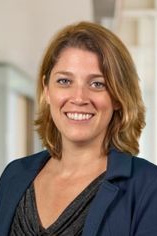
Susanne Roosing, Ph.D.
Dear GECG members,
Two years ago we published that particular structural variants (SVs) underlie the genetic cause of autosomal dominant retinitis pigmentosa (adRP) in the RP17-locus (de Bruijn et al, AJHG, 2020). SVs in this locus are large, complex and difficult to classify as pathogenic or benign. We therefore want to generate guidelines to determine better what SV is pathogenic and what SV is benign. From the Foundation Fighting Blindness USA, we (together with Prof. Hardcastle and Prof. Cheetham from UCL London) received funding to study adRP cases worldwide to identify RP17 SVs and establish these guidelines for classification, to further investigate the mechanism of disease and also make steps towards the development of a treatment.
We will do so using our up and running RP/LCA smMIPs approach covering all currently known 113 RP/LCA genes as well as relevant coverage for the RP17 region. The establishment of this method was published recently (Panneman et al: Frontiers | Cost-effective sequence analysis of 113 genes in 1,192 probands with retinitis pigmentosa and Leber congenital amaurosis (frontiersin.org))
We are open to receive DNA from your unsolved adRP probands to investigate if there are RP17 SVs defects among your cases.
Of course, when analyzing your samples we will not restrict ourselves to the RP17 region, but we will also assess the other 113 RP/LCA genes in the panel and you will get and overview of all pathogenic variants in your cases (similar to table 4 by Panneman et al). For suspected RP17-cases we will again contact you to proceed with WGS to further characterize the putative pathogenic structural variant (as the boundaries are very unlikely to be detected).
If you have unsolved adRP-probands, please get in touch with me so we can share DNA requirements, conditions and procedures for shipment for you to start preparing samples at the earliest of your convenience. We are ready to accept your samples at any point (but the earlier the better). There are no charges for the first 1,000 adRP cases we include.
You will receive our findings in an excel sheets, along with ACMG classifications and our assessment if cases are solved, likely solved or unsolved (We cannot provide a diagnostic validation of the findings, however, the variants may be used at your own facility institute to do so).
Please get in touch if you have samples for our study or in case you have questions,
Best wishes,
Susanne Roosing
Susanne Roosing, PhD
Assistant Professor Blindness genomics and transcriptomics
Susanne.Roosing@radboudumc.nl
Radboud university medical center
Department of Human Genetics (route 855)
Office: Room 5.10
Geert Grooteplein-Zuid 10
6525 GA Nijmegen
The Netherlands
T +31 24 3668901
Postbus 9101, 6500 HB Nijmegen (855)
www.humangenetics.nl / www.radboudumc.nl
www.SusanneRoosing.com
